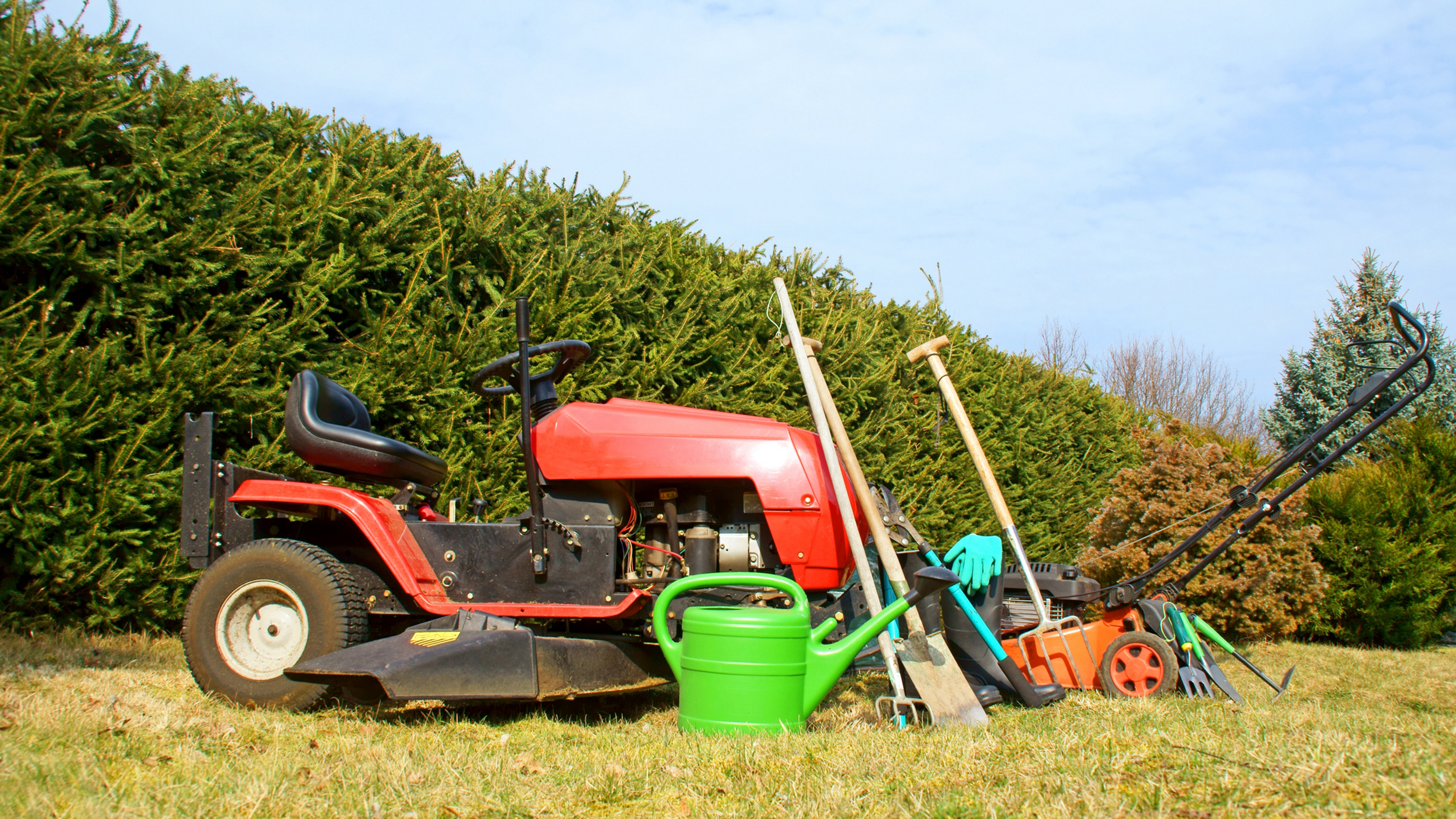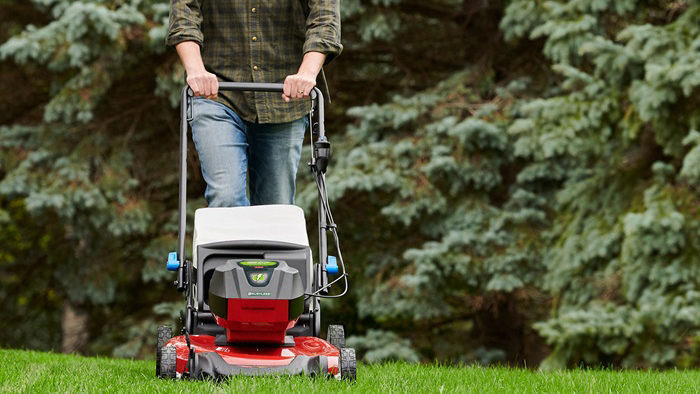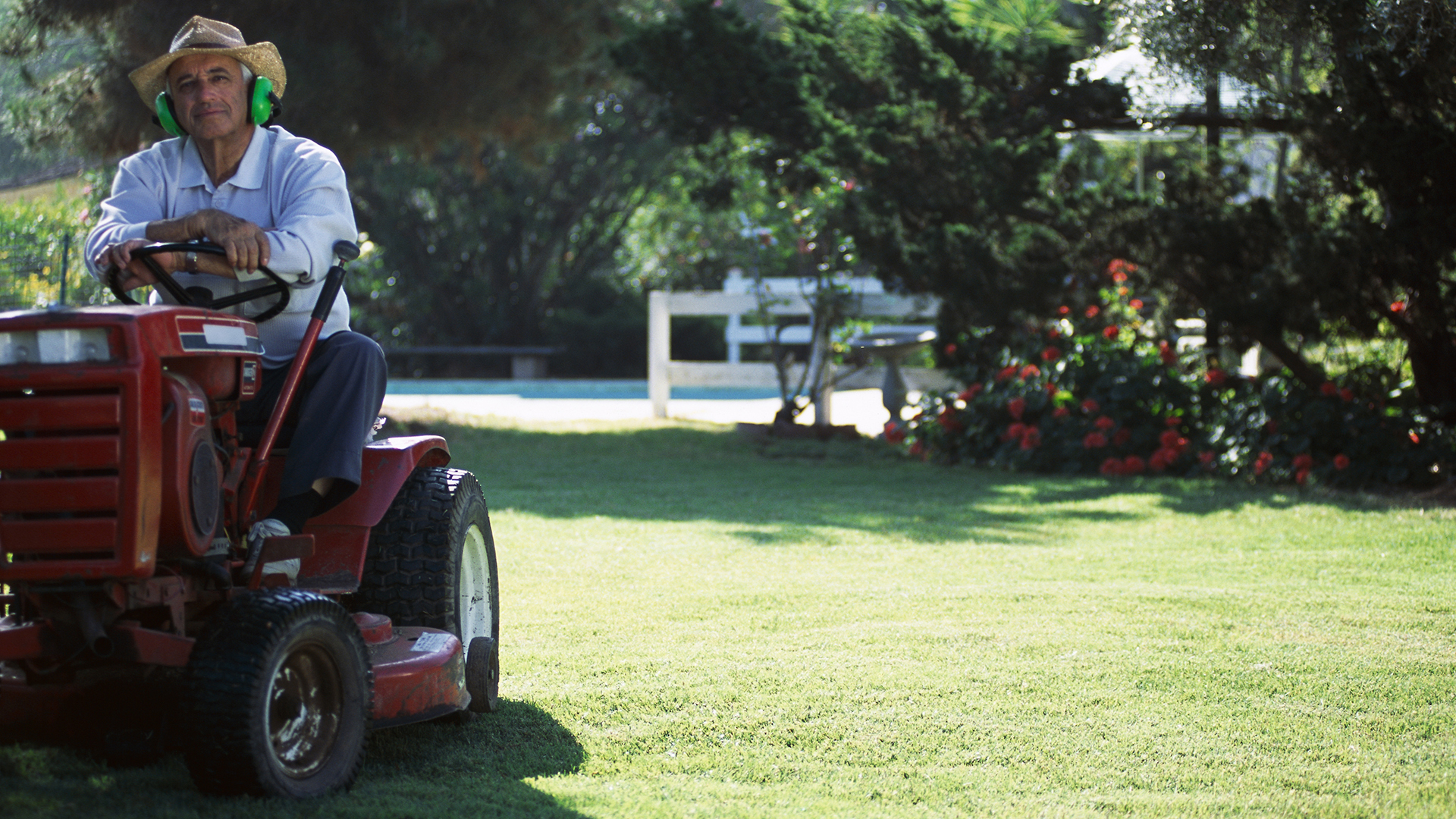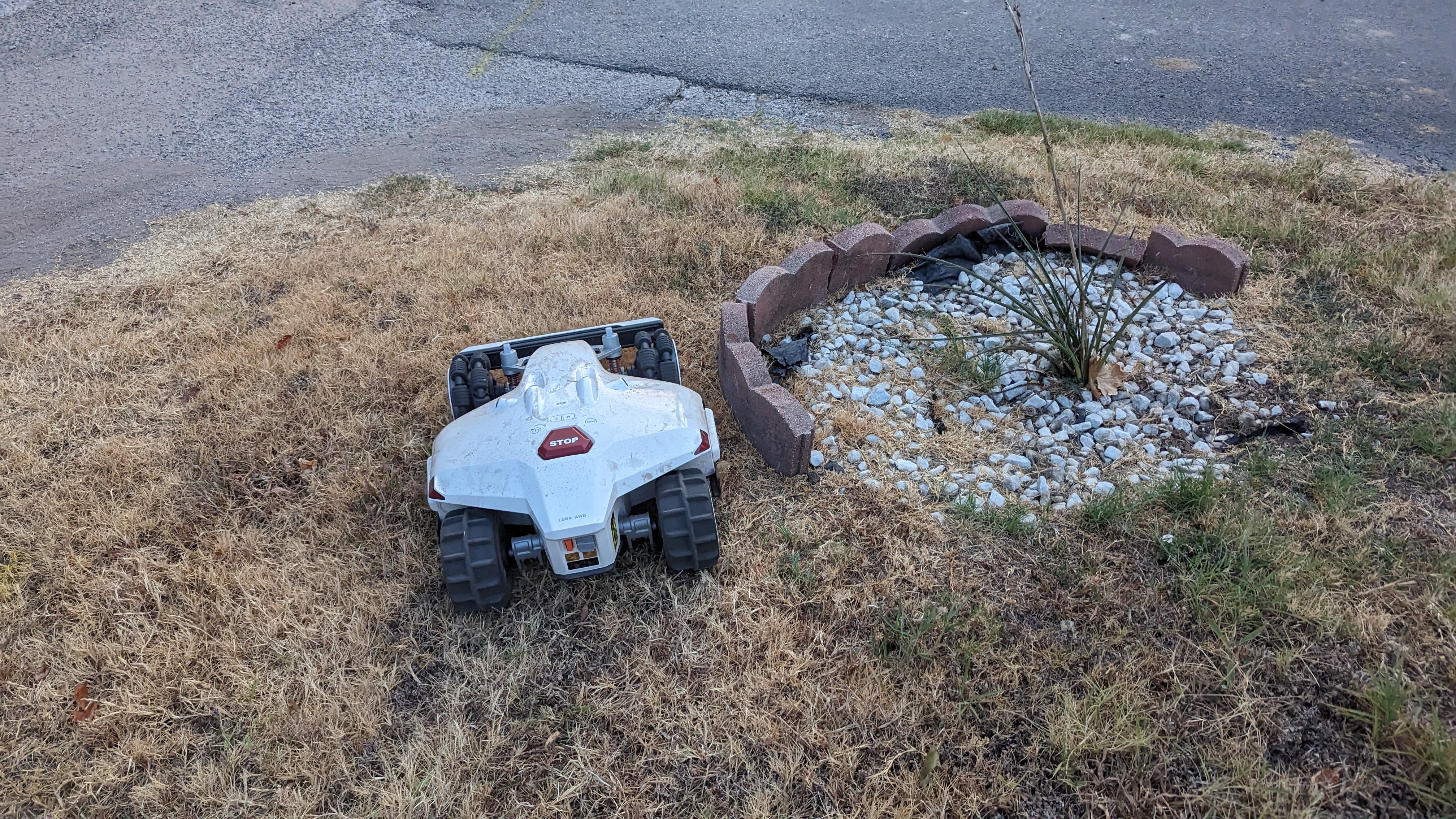
If your grass needs cutting and you want to know how much should you pay for a new lawn mower, it's a bit like asking how long is a piece of string.
As with any big appliance, you can spend a little or a lot, and what you end up buying will depend on a few factors: your budget, the size of your yard, whether it is hilly or flat, and what kind of features you need.
While we've seen basic push mowers for as little as $80, you can easily spend $2,500 for a ride on, and into the high thousands for one of the best robot lawn mowers. These automatic grass cutting machines save time and energy, which is one reason why many people choose robot vs push mowers. But they are at the higher end of the price bracket.
To help you understand how much a new lawn mower should set you back, we've called in the professionals, gardening experts Amanda Kincaid and Oliver Johnson.
So whether you are choosing a robot mower, like the sound of one of the best riding lawn mowers or prefer the traditional push machine, read on to find out about the average cost of each.
How much should I pay for a new lawn mower?
1. Push mowers
There are two main types of push mowers, one that requires manual effort to keep the mower moving forward and self-propelled mowers which have a drive system to assist the user, Fiona Jenkins, a gardening expert for MyJobQuote, told TopTenReviews.
"Within these two categories, you can choose how the mower is powered, by gas, electricity or battery. Depending on the make, model and size of the mower you can spend between a couple of hundred dollars to a few thousand."
"However, if you just want a reliable mower to cut the grass in your yard there are plenty of options.
"A reliable electric push mower—such as the Greenworks 40V 16" Cordless (Push) Lawn Mower (Amazon) —will cost around $250 - $350. If you prefer some assistance a good self-propelled electric push mower will typically cost around $400-$550.
"For those who have larger areas of grass, a gas-powered mower is more practical. A standard gas push mower costs around $300-$350 while a self-propelled gas mower is more expensive costing between $400-$500 for a decent model," says Fiona.

Some of the features that you should consider when buying a push mower, according to Fiona, are:
- Cutting width – how much grass is cut on each pass
- Fuel type – gas, electricity or battery
- Start options – electric or pull start
- Speed control – single or variable
- Drive type – rear or front wheel drive
- Brushed or brushless motor – mechanical or electronic
- Size of your yard – ¼ - ½ acre or ½ - 1 acre
- Terrain – level or sloping
She says: "The importance of each of these features will vary according to your situation. For example, how large your yard is, how much physical effort you can/want to put into mowing your grass and the cost of the different power sources. Which features you deem important to have on your mower will be influenced by these factors. However, for most people, a self-propelled mower is worth the extra expense."
Gardening appliance expert Oliver, from HomeAdviceGuide.com, told TopTenReviews. "To ease the strain of pushing your mower, you want a model that’s lightweight and easy to handle. Look for a well-thought-out design with an ergonomic handle and go for a self-propelling model with larger wheels to make things easier.
"To save yourself time and effort, good bagging and mulching features are a must. It’s also worth checking how easy the machine is to maintain. For instance, how easy are the blades to clean and replace?"
Gardening expert Amanda, who is marketing manager for garden tools brand STIGA, told TopTenReviews: "Mowers constructed with aluminium or steel cutter-decks are strong and durable, whilst smaller machines made of plastic are often lightweight and rust-proof. Always look for a reassuringly lengthy five-year warranty for added peace of mind."
2. Riding mowers
A riding mower, also known as a ride-on, lawn tractor or tractor mower, is one where the person is seated, unlike mowers that are pushed or towed. Although they are more expensive, they are larger, come with more powerful engines, and make light work of mowing your lawn because they are fast and keep you off your feet.
Fiona told TopTenReviews: "When you have a yard that is more than an acre in size a push mower is just not practical. The solution is a riding mower which means you sit on the mower as it cuts. These are highly efficient mowers, saving you a lot of time and energy and can also be used for other jobs around the garden such as towing a cart or lawn sweeper.
"There are many different brands, sizes and models of riding mowers but the two main types are the lawn tractor and the zero-turn mower. The lawn tractor is just as its name suggests, a mini tractor with a cutting deck but which can also be used for other tasks by raising the cutting deck. A zero-turn mower is highly maneuverable and is designed for yards with lots of obstacles.
"While you can spend between $2,000-$5,000 on a riding lawn mower, a reliable model—such as the Cub Cadet XT1 Enduro LT 42 in. 19 HP Briggs and Stratton Engine Hydrostatic Drive Gas Riding Lawn Tractor (Home Depot)—can be had for around $2,500-$3,500.
Oliver says: "The size and shape of the area you’re cutting will determine the model you should go for. The width of the mower is important if you need to drive it through gates, and the size of its turning circle is crucial if you need to cut and steer around obstacles such as trees and borders.
"Zero-turn models typically give you the best maneuverability and can tackle large areas fairly quickly. So, if you’re looking to reduce time and effort, this is a feature to pay close attention to. If you have neighbors and are concerned about noise, it might also be worth looking at battery-powered rather than gas models, but do check the coverage you can do on a single charge.
"Other than that, you should compare the speed of the mowers in your price range and the terrain they can handle safely. A good bagging and mulching system is also worth paying for. For those likely to spend long periods of time on their mower, you’d be wise to look for a comfy seat with lumbar support."
The features that you need to consider when choosing a riding mower, according to Fiona, include:
- Size of your yard – anything over 1 acre typically needs a riding mower
- Cutting width – 30-46 inches up to 2 acres, 48-54 inches up to 4 acres
- Horsepower – 13.5 HP – 24 HP
- Power source – gas or battery
- Number of cutting heights
- Transmission type – automatic, gear drive or hydrostatic
- Reverse mowing – mower will cut in reverse gear
- Ride comfort

3. Robot mowers
Robot lawn mowers are becoming increasingly popular because they do all the hard work for you. You just need to install the perimeter or boundary wire to show the robot where to go, and you can even set them to start on a timer or remotely. They are ideal for homeowners who don't have much time to maintain their yard, but they don't come cheap.
Prices start from $600 but expect to pay at least $2,000-3,000 for one of the best robot lawn mowers, like the Mammotion Luba AWD 5000. Larger robot mowers with high-tech GPS or anti-theft features could set you back a lot more, anywhere from $5,000 to as much as $42,000 for the BelRobotics BigMow Robotic lawn mower that can cut up too 24,000m2 (it's been specifically designed for football, rugby and baseball pitches).
Fiona says: "If you’d prefer to spend your time doing something more fun than mowing the lawn at the weekend, a robotic mower may become your new best friend. All you have to do is set it up, program it and leave it to do its job. You don’t even have to remember to charge it as it will return to its base when it is low on battery and recharge.
"Apart from allowing you to do something more relaxing at the weekend a robotic mower is also quieter than a gas one. It cuts the grass in a random pattern so leaves no permanent tracks and trims the grass so small that it acts as a fertilizer. This little and often approach reduces stress on the lawn by not taking off too much at once."
Features to look out for, says Fiona, include:
- Boundary type – GPS or wire
- Connectivity – Bluetooth or cellular
- Slope performance – 30% - 70%
- Yard size – typically ¼ - 1 acre
- Anti-theft protection
- Electric height adjustment
- Ease of programming
- Cutting width

Oliver told TopTenReviews: "It’s worth looking at the complexity of use. Models that don’t need a perimeter wire tend to be the easiest to set-up, while smart controls will give you greater flexibility over programming. If you live in an area that’s prone to showers, then you might want to get a model with rain sensors or wet-cutting capabilities.
"It’s also worth checking the coverage and incline specifications of the machine you’re considering, to make sure it’s suitable for the size and slope of your lawn. Robot mowers with four wheels and deep treads are usually better for bumpy lawns."
Don't forget to factor in cost of installation. The cheaper robot mowers are designed for self-installation, but check if they come with the kit needed to do this, as this might be extra. More advanced robot mowers might require a professional installer, who might charge by the hour plus material costs.
Replacing a robot mower battery can also be pricey—with some costing around $600. These usually need changing every four to six years.
The good news is, with proper care and maintenance, the average robot mower should last you several years, and they save a lot of time and energy when it comes to cutting grass.
Amanda told TopTenReviews: "Robot mowers give you maximum freedom and flexibility in your garden. Autonomous robotic mowers are a new breed of machine so if you are considering buying one of these always look for one that combines RTK GPS (real time kinematics) and patented predictive Active Guidance System (AGS) to plan the most effective mowing route.
"This includes sensor safety mechanisms specifically designed to ensure the machine stops as soon as it detects an obstacle not previously mapped out in the perimeter."
Is it worth spending more on extra features?
You might be wondering, is it worth buying an expensive lawn mower? If you have the budget to spend a bit more, you can expect some smart features that make life easier. More pricey models might come with an app so that you can control the machine from your phone, or they could be self propelled, taking a lot of the grunt work out of mowing.
As well as the extra features on more expensive mowers, premium machines tend to have better components, are often more energy efficient, and come with longer warranties.
Most mowers have a single speed, but some higher-end models have a selection of drive speeds. Cordless machines cost more, but they tend to be very lightweight with fast charging times and longer runtimes, so you can get your grass cut quicker.
Riding and robot mowers are at the higher end of the price bracket for garden appliances, but are more convenient and time-saving.
Check our roundup of lawn mower deals. We regularly update it so when you're ready to buy you can find a great price.







